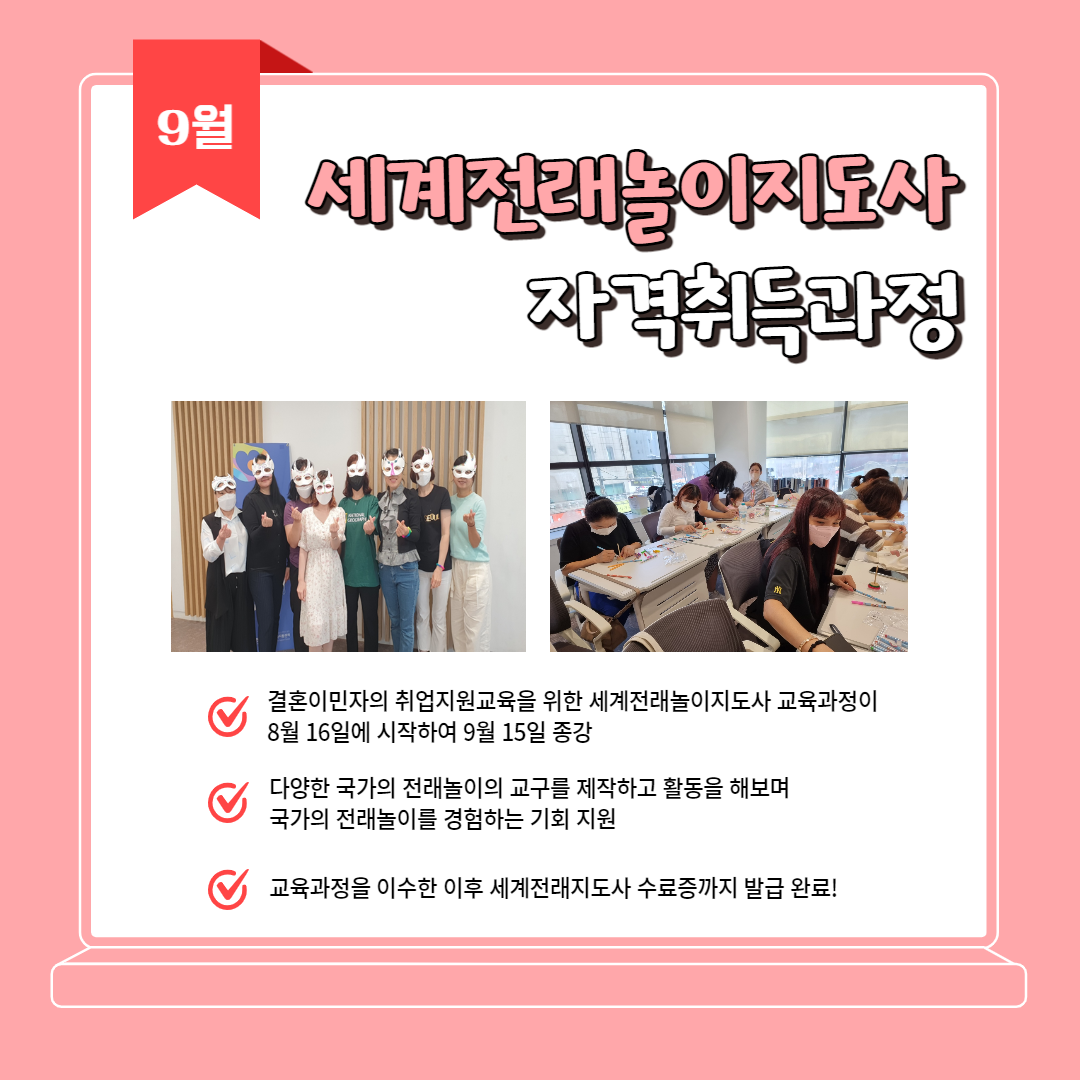
The International Recreation Education Association (Chairman Kim Jae-il) operated a certification course for global traditional play for multicultural families from Saturday, the 24th, to Sunday, the 25th, over two days at the 2nd-floor training center of the International Recreation Education Association.
This training program was selected for Gwangju Metropolitan City's "2025 Multicultural Family Support Program Operation" public offering, and it is a professional qualification acquisition course in recreation and global traditional play for marriage immigrants and multicultural families. By operating a program of global traditional play theory and practical courses, the aim was to foster participants' capabilities as instructors through professional education and provide opportunities for them to be active in the local community.
The two-day, 16-hour training included play guidance teaching methods for recreation instruction, introductions to the culture and greetings of various countries, and traditional play guidance methods from over 10 countries such as India's Seven Stones, Vietnam's Ganh, and American Ghost Boxing. The training was led by professional instructors from various countries, including Ms. Kim Sa-rang from Vietnam, Ms. Contado Anabel from the Philippines, Professor Jung Eun-kyung from Korea, and instructors from China and Thailand.
Throughout the training, there was an enthusiastic atmosphere and active participation, with participants striving to learn and convey their own country's traditional games, as well as those from other countries, as clearly and accurately as possible. High expectations were placed on the results, and the training evaluation showed excellent results, with almost all participants scoring 86 points or higher.
Participants in this training program will be awarded a "Global Traditional Play Certificate (Level 1)" and can participate as experts in global traditional play at elementary, middle, and high school festivals and various cultural events.
Kim Sa-rang, a Vietnamese professor who participated as a professional instructor, expressed her thoughts, saying, "Throughout the entire session, I tried to teach more things in a more accessible and understandable way due to the participants' serious and active attitude."
Ms. Han Ah-reum from Thailand, a participant, happily commented on finishing the training, "Receiving such education made us feel treated as proper Koreans, and it felt truly fulfilling to be preparing a stepping stone to become instructors of traditional games from our own country or various other countries."
(Photos provided by the International Recreation Education Association) (Photos provided by the International Recreation Education Association) An official from the International Recreation Education Association (Chairman Kim Jae-il), which organized this training, expressed gratitude to the Gwangju Metropolitan City authorities for providing such an opportunity through the public offering project in an era where there are 2.6 million foreign residents in Korea. He concluded with a hopeful message, saying, "For the increasing number of multicultural families and society, this is a very meaningful activity for both participants and instructors. I hope that more such opportunities will be given, leading to a happy multicultural society where different countries understand and come together."
With foreigners now accounting for approximately 6% of our population, the multicultural era has become a necessity, not an option. However, misunderstandings often arise due to cultural differences such as skin color, language, and food among immigrants, and prejudices, biases, inequality, and discrimination against immigrants are a reality.
Joyful play culture is a channel that brings countries closer and a tool that fosters intimacy. Therefore, through traditional games from various countries, the mutual respect and consideration between immigrants and native residents help to improve the perception of multiculturalism and realize a life of living together. In this sense, the operation of the International Recreation Education Association's Global Traditional Play Certificate acquisition program, which was selected as a public offering project for the Gwangju Metropolitan City's "Multicultural Family Support Program Operation," is highly desirable and is hoped to become even more active in the future.
[Copyright (c) Global Economic Times. All Rights Reserved.]



























